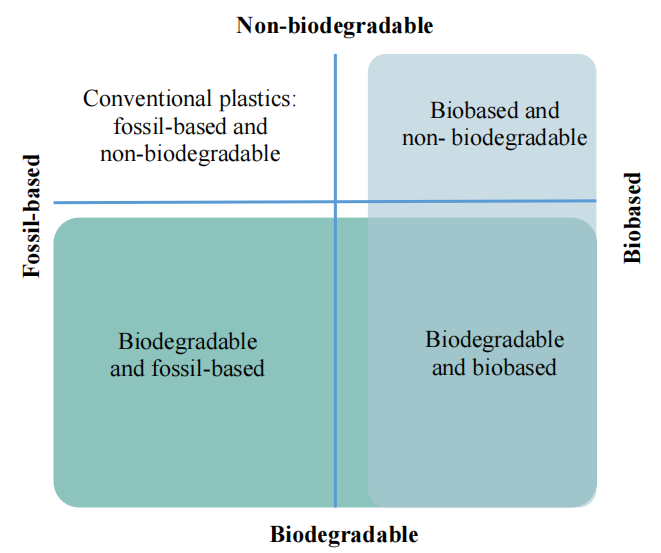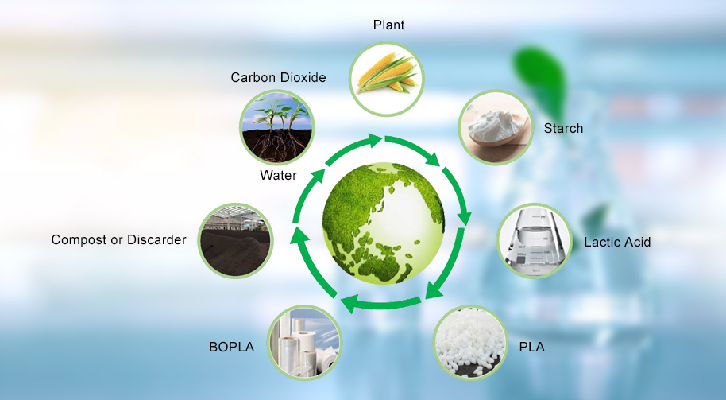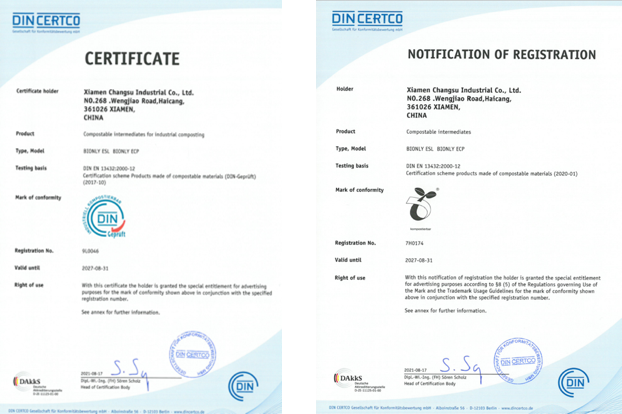Policy interpretation | details you need to know about the EU "plastic restriction order"
Recently, the European Union's policy framework (hereinafter referred to as "the policy") for bio-based, biodegradable and compostable plastics has been released. The policy mainly promotes the use of recyclable and environment-friendly materials, which guides the future of environmental sustainable development. It will not only better regulate the bioplastics industry, and usher in a new wave of growth in Europe's bio-based and biodegradable plastics industry, but also bring a series of new regulatory issues on bio-based and biodegradable plastics and compostable plastics.
Facing the aggressive "plastic restriction order", what are the details worth digging? Let's make a point for you to have a deeper understanding.
01 Concept of "bio-based, biodegradable and compostable plastics"?
"Bio-based" means that the raw materials or raw materials used for its production are made of biomass, such as sugarcane, cereal crops, oil crops or wood and other non-food sources. Other sources are organic waste and by-products, such as used edible oil and bagasse.
The plastic, known as "biodegradable", is clearly defined to be decomposed by transforming all its organic components (polymers and organic additives) into carbon dioxide and water, new microbial biomass, mineral salts and methane in the absence of oxygen at the end of its service life to ensure that it is non-toxic and harmless to the environment.

As shown in the figure above, it is clearly divided into four dimensions: fossil-based, bio-based, biodegradable and non-biodegradable.
"Compostable plastics" is a subset of biodegradable plastics, designed to be biodegradable under controlled conditions, usually through industrial composting or anaerobic digestion in special facilities.
One of the key points of the policy formulation is to further define the bio-based, biodegradable and compostable plastics, and specify the conditions to ensure that their production and consumption have a positive impact on the environment.
BiONLY, a new biodegradable film independently developed by Xiamen Changsu, It has the characteristics of bio-based and controllable degradation. Its raw material PLA (polylactic acid) is derived from starch extracted from corn and sugarcane, which is fermented and polymerized by microorganisms. After use, the product can be completely degraded into water and carbon dioxide within 8 weeks under industrial composting conditions.

02 How to use the term "bio-based, biodegradable and compostable plastics"?
For "bio-based", the term can only be used when indicating the accurate and measurable share of bio-based plastic content in the product, so that consumers can know how much biomass is actually used in the product. In addition, the biomass used must be from sustainable sources and not cause harm to the environment.
For "biodegradable", it should be clear that such products should not be left littering and should state how long it takes for the product to biodegrade, under what circumstances and under what environment (e.g. soil, water, etc.). Products that are likely to be littered, including those under the Single-use Plastics Directive, cannot be claimed or labelled as biodegradable.
There are also clear regulations for "compostable plastics", one of the subdivisions of biodegradable plastics, that only industrial composting plastics that meet relevant standards should be labeled "compostable" and that industrial compostable packaging should show how the item is disposed of. And given consumer behavior, industrial compostable plastics should only be used for specific applications if their environmental benefits outweigh those of their alternatives and do not negatively affect compost quality.
The second focus of the policy formulation is to clarify the specific use of relevant terms, which can better regulate "bio-based, biodegradable and compostable plastics".
BiONLY® not only has the highest level of biobase certification issued by DIN, the European authority certification body (biobase content of more than 85%), but also has the corresponding industrial compostable certificate, products perfectly meet the needs of customers export to the European Union.

It is worth mentioning that on the same day, the European Commission issued a proposal to amend the Packaging and Packaging Waste Directive (PPWD), which recognized the contribution of composting plastics in increasing the quantity and quality of separately collected biological waste and reducing the pollution of (organic) waste streams. It also required that tea bags or filtered coffee bags, capsules, very light plastic handbags and sticky labels affixed to fruits and vegetables must be compostable. At the same time, the Committee also reserves the right to expand the list of applications for the mandatory use of compostable packaging, which undoubtedly opens up future space for the application of compostable plastics in the EU.
03 What are the specific requirements for product export after the policy is formulated?
In the context of low carbon and environmental protection, achieving the goal of "carbon neutrality" has become the consensus of the international community. Accelerating the construction of a green and low-carbon development system has become the trend of the times. The launch of the new EU policy is undoubtedly the best evidence. The proposal of this policy also shows the European Commission's transition to recycling, resource efficiency and climate neutral economy, as well as its determination to achieve zero pollution. It can be seen that for the products exported to the EU in the future, the complete relevant certificates are undoubtedly the basis of everything.
Xiamen Changshu is willing to work with the downstream business partners to jointly fulfill the responsibility of carbon reduction, and work with a large number of excellent Chinese enterprises to serve global users with high-quality products, create more value and go to the world stage.
If you want to learn more about Bopa&Bopla Film, please contact us: marketing@chang-su.com.cn
Post time: Jan-29-2023

